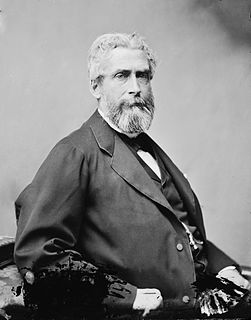A Quote by Brendan Myers
For those who struggle with anti-pagan prejudices and stereotypes, Humanist Paganism might be a powerful educational tool. It can show that a pagan can be a sophisticated, cosmopolitan, and enlightened person, and that a pagan culture can be artistically vibrant, environmentally conscious, intellectually stimulating, and socially just.
Related Quotes
Homer, Hesiod, Pythagoras, Plato, and Cicero, just to name a few, all lived in pagan societies. Some of the greatest political and military leaders of all time, such as Alexander the Great, Pericles of Athens, Hannibal of Carthage, and Julius Caesar of Rome, were all pagans, or else living in a pagan society.
I think people hear the words 'transcendental meditation' and 'paganism,' and that's almost worse because it's real. Those are real things. Those are absolute energies. Satanism is like Halloween. Transcendental meditation and having a realization of how we really are - whether we want to be or not - we live in a pagan culture.
The early church was strikingly different from the culture around it in this way - the pagan society was stingy with its money and promiscuous with its body. A pagan gave nobody their money and practically gave everybody their body. And the Christians came along and gave practically nobody their body and they gave practically everybody their money.
The Pagan model of religion because, in the Pagan model, there were lots and lots of Gods and Goddesses. They were all incredibly beautiful and there were statues of them everywhere, which is the equivalent of magazines, or whatever, today. And they were fallible, which is different from being mono-, you know, Jewish or Islam (where) you have the infallible, monotheistic God.
Samhain had its origins, like many modern holidays or celebrations, in pagan times. As the sidhe-seers had been inclined to erect churches and abbeys on their sacred sites, the Vatican had been wont to “Christianize” ancient, pagan celebrations in an if-you-can’t-beat-them-and-don’t-wantto- join-them-rename-it-and-pretend-it-was-yours-all-along campaign.
God warned Israel, "And if thou wilt make me an altar of stone, thou shalt not build it of hewn stone: for if thou lift up thy tool upon it, thou hast polluted it" (Ex. 20:25). To pollute something is to make it ordinary. God insists that any approach crafted by human ingenuity will produce a worship system just like all the pagan systems in the world. In other words, it will be common or profane - just like everyone else's paganism.
A wee child toddling in a wonder world, I prefer to their dogma my excursions into the natural gardens where the voice of the Great Spirit is heard in the twittering of birds, the rippling of mighty waters, and the sweet breathing of flowers. If this is Paganism, then at present, at least, I am a Pagan.
Our patriotism comes straight from the Romans. This is why French children are encouraged to seek inspiration for it in Corneille. It is a pagan virtue, if these two words are compatible. The word pagan, when applied to Rome, early possesses the significance charged with horror which the early Christian controversialists gave it. The Romans really were an atheistic and idolatrous people; not idolatrous with regard to images made of stone or bronze, but idolatrous with regard to themselves. It is this idolatry of self which they have bequeathed to us in the form of patriotism.




































